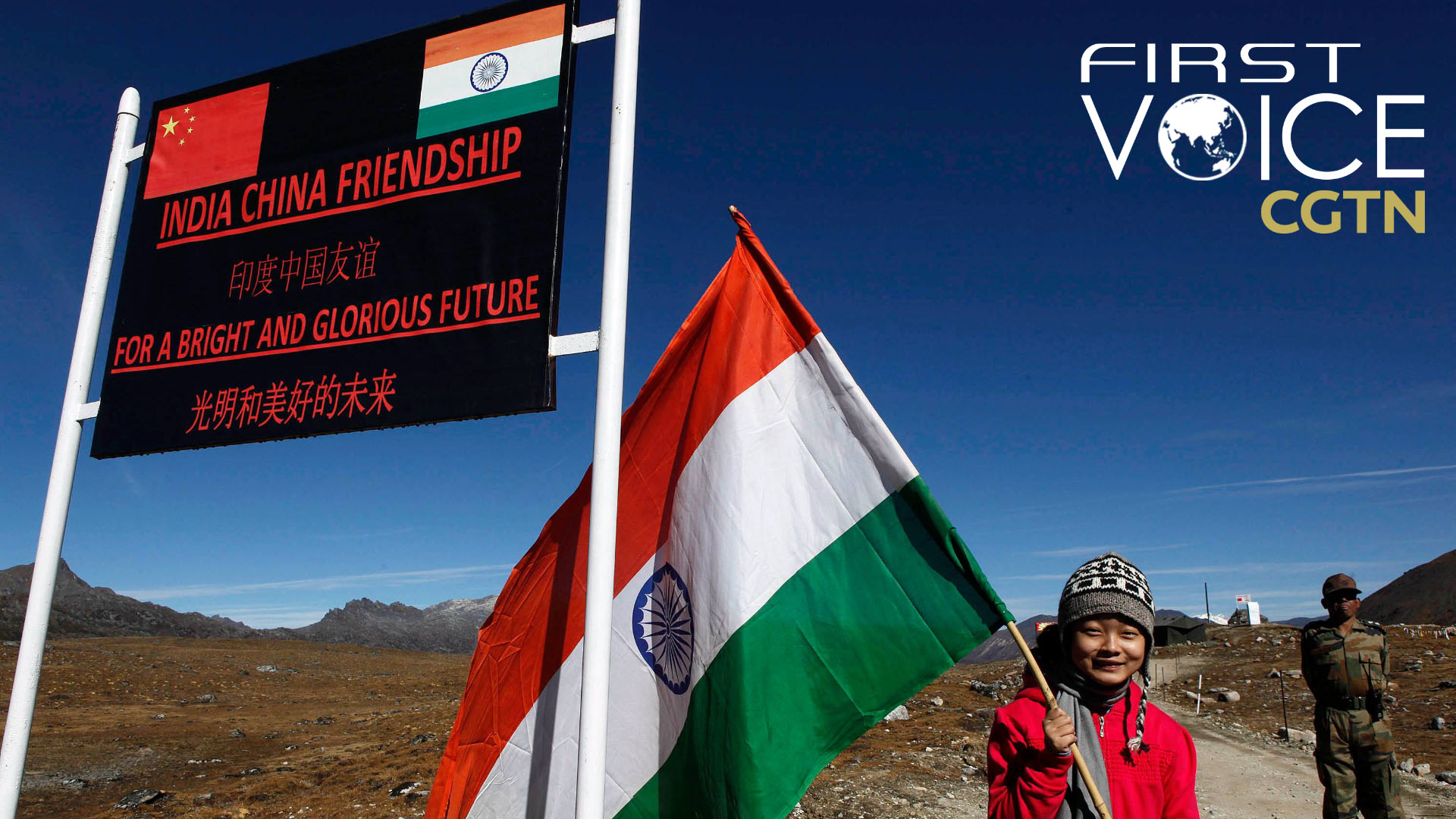
Editor's note: CGTN's First Voice provides instant commentary on breaking stories. The daily column clarifies emerging issues and better defines the news agenda, offering a Chinese perspective on the latest global events.
Since China and India reached an agreement to disengage from the border, the China-India relationship has seen an uptick. It is reported that New Delhi is seeking to proceed with 45 investments from Chinese companies in the country while China-India trade has similarly recovered to place China as India's largest trading partner again.
India and China have their differences, particularly in the field of ideology and political systems. But they ultimately have more in common than they have apart. India, like China, is what scholars have dubbed a "civilization state" - that is more than a simple modern nation-state, but a country that derives itself directly from a long-lasting civilization and represents its contemporary form. Indian civilization is derived from Buddhism and Hinduism, the former of which had contributed to the culture of Asia as a whole.
And like China, India takes great pride in this heritage. As civilization states, China and India at their peak constituted the two most prosperous and bustling economies in world history. In the 18th century, the Qing Dynasty constituted 30 percent of global GDP and India's Mughal Empire 25 percent, respectively. This only seeks to demonstrate the massive potential both countries hold today as they seek growth and prosperity for one another.
As present-day states, China and India are both developing nations and post-colonial states which have taken a lead role in shaping the "non-aligned movement." Both countries care deeply about their national sovereignty and territorial integrity, suffering painful historical memories of colonialism and exploitation by Western powers. The Indian-China border dispute for one is a legacy of the British Empire and the so-called McMahon line. While this dispute has brought about a lot of regrets, the premise of developing world solidarity, whereby India and China recognize each other as integral to their future growth and prosperity, ought to be the leading way forwards in relations.

A street scene in Mumbai, India /VCG
A street scene in Mumbai, India /VCG
It is time to turn the China-India relationship to focus again on points of mutual interest instead of differences. India is a country with enormous economic potential and will be one of the markets of the future. China is not opposed to India's development or role in the world, and likewise, New Delhi recognizes that China's investment is and will remain an essential part of the country's growth. In this case, rather than tilting towards a de-facto alliance with the United States in what is styled "the quad", it is time to calibrate a new balance in ties between the two countries, seek mutual cooperation, and de-escalation.
Given this, it is important now that both sides move on from this dispute and seek diplomacy as opposed to confrontation and nationalist saber-rattling. India's resumption of Chinese investments and the sustaining of trade constitute a welcome gesture and also a realization that national development cannot succeed without the support of China. Both countries have far too much to lose by designating one another as enemies. Likewise, for Chinese companies, India's growing domestic consumer market remains of pivotal importance.
Moving forwards, there are a number of ways India-China cooperation can take shape, one which does not have to constitute rivalry or competition. First of all, the two countries ought to pool together in supporting other developing countries in the pursuit of mutual development. Forums such as the BRICS represent the frontline of the economies of the future and should be utilized as such. Likewise, institutions such as the Shanghai Cooperation Organization should represent platforms for regional cooperation and security dialogue. And in recognizing its relationship with China, India should be cautious of jumping headfirst into anti-China alliances such as the Quad.
Both countries are in the position to recognize aptly neither has anything to gain from zero-sum collision or hostility. There is no "win-lose" logic here. As neighbors, China and India's national development is ultimately heavily influenced by one another. They are interdependent. China will be prepared to support the development of India's economy, consumer base and provide an export market in turn. It's time to focus on the fundamentals, rebuild dialogue, and opt for stability.
(If you want to contribute and have specific expertise, please contact us at opinions@cgtn.com.)

